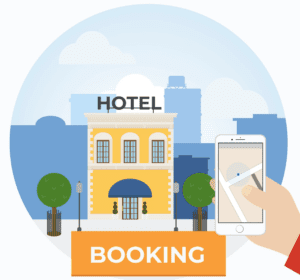
 Recently we’ve noticed some trends about technology and user experience that are interesting to note for hotels. Two interesting examples relate to Facebook and Skype, two of the most popular platforms and both household names around the world.
Recently we’ve noticed some trends about technology and user experience that are interesting to note for hotels. Two interesting examples relate to Facebook and Skype, two of the most popular platforms and both household names around the world.
Here’s how and why this is relevant to hotels, and one way in particular that hotels can learn about and keep up with similar trends; by watching what OTAs mark as business priorities.
Use Facebook Messenger without a Facebook account
Earlier this year Facebook decided to make access to its Messenger app open to anyone with a phone number. This means users did not need to create or have an actual Facebook account in order to use the Messenger app. For the avid Facebook users out there, now we all get why the app split took place in 2014! To refresh your memory, Facebook users who once used the messaging function within the Facebook app, were forced to download the new, separate Messenger app in order to continue messaging.
Use Skype without a Skype account
Skype (Microsoft owned) has also changed its access requirements to simplify and encourage wider usage of the platform. The competition for messaging and communications apps has intensified in recent years, and despite being once of the first players in the space – Skype/Microsoft have set a great example by avoiding complacency.
What does this all mean for the user experience?
As users we get a little uncomfortable when there are changes to the way we use our favourite platforms, particularly when we don’t understand the reasons for the changes. In general however, technology users as a rule love the ‘path of least resistance’ wherever possible. We love shortcuts, we love simple interfaces and we love when technology makes our lives easier.
So it seems these communication and technology platform providers are learning that users face all kinds of barriers to usage, whether they are geographical, technical or simply lifestyle barriers. The online world is a cluttered place and as users we have little patience for long-winded or confusing user experiences, particularly when it comes to sign up processes. Use of our social media channels as sign-up tools have streamlined this, and it’s well known that users are prepared to give over more and more personal information if it will lead to more streamlined, personalized services and experiences.
What does this mean for hotels?
Even though OTAs are sometimes seen as the enemy, hotels should take note of what OTAs prioritize. User experience is a key area of constant investment and innovation for OTAs. They may have more market power and more buying power, but their priorities here point to technology trends consistent with those happening outside of the travel industry. This is interesting to note. Hotels that are making technology a priority to enhance their guest experiences should keep in mind that user experience is what determines the rate of results, whether the goals are for engagement or ROI.
OTAs have also identified that 23% (up from 12% in 2014) of bookings are on mobile devices. If this rate of growth continues, it will point more strongly to the idea that travel and mobile devices go hand in hand. Our mobile devices are an extension of our selves, the screens where we carve out our socially constructed identities. We are incredibly attached to our mobile devices, not just socially but in just about every aspect of our lives. We bank on the go, we work from anywhere, and we can get just about anything we want in these real-time, on-demand times. It’s really a luxury to live this way, so why wouldn’t we behave the same way when we are travelling? When we are actually looking to immerse ourselves in hyper-luxurious surroundings and experiences. Our behaviours do not switch off, in fact we probably expect even more enhanced experiences from our mobile devices when we are travelling.
The key message for hotels is to understand how guests naturally behave and what they expect. One of the most challenging aspects is that those behaviours and expectations are not static. They change over time, and they are shaping how experiences and services should be delivered. Aside from guest or consumer-driven service expectations, the ‘user experience’ that we speak of needs also to be carefully designed based on the known psychology of the users in this very specific context – while they are travelling and staying in your property. Some incredibly creative mobile experiences can be crafted to accentuate and enhance hotel brand values, and this will be increasingly expected, particularly of independent hotels where highly unique physical experiences are provided.
About the author
 Kim Adams is the Marketing Coordinator at GuestDriven. She is an Aussie expat whose favourite places to travel are Quebec City, New York & Australia.
Kim Adams is the Marketing Coordinator at GuestDriven. She is an Aussie expat whose favourite places to travel are Quebec City, New York & Australia.



















